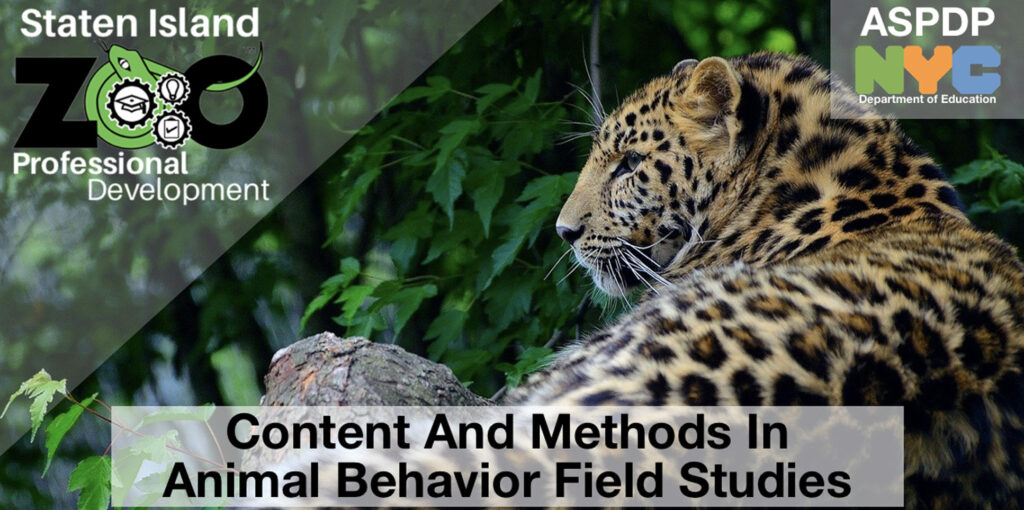EDUCATION
PROFESSIONAL DEVELOPMENT
Staten Island Zoo offers on-site professional development courses for teachers. These courses offer content in scientific disciplines, as well as how to incorporate literacy and math strategies into your curriculum. We will also show you how to use the Zoo as a study site for your students. All courses are aligned with Next Generation Science Standards and New York State Science Learning Standards. New York City DOE teachers can earn CTLE and P-Credits for these courses!
Registration For Summer 2021 Closed

Participants will explore using a project-based, animal behavior investigation in their classroom by utilizing the animals, exhibits, and resources at the Staten Island Zoo. Over three weeks, participants will develop the steps and skills necessary to lead their students through an animal behavior study, from generating engagement through curating a scientific explanation, by designing and conducting their own scientific investigation. Immersing themselves in the process, participants will develop a deeper understanding of both science practices and science content that can be repeated online, in the classroom, and/or using the Zoo as a field trip. Participants will learn biological and ecological concepts while modeling the behavior of a zoological researcher in the field. We will cover how to introduce a zoo as a study site, whether using in-person or virtual resources. Participants will have a chance to practice the unique ways of collecting data in the field of animal behavior research as we also learn the evolutionary concepts that influence animal behavior. Participants will also learn about the many careers that exist in the fields of biology and zoology, including captive management. There will be several animal presentations and tours for background content in adaptations and animal behavior.
After researching a species in our collection, participants will observe the animal’s behavior in a captive setting through online videos and livestreams. Examining their collected research, they will compare what they observed to what they would expect to see in a natural setting. Participants will learn about the concept of “enrichment” and allowing species to display natural behaviors in a captive environment. Working with a team, participants will design an enrichment item for their animal given the Zoo’s parameters and approved items lists to promote any natural behaviors they expected to see but did not.
This course will take place entirely online with scheduled synchronous meetings for lessons and questions, and asynchronous work for discussions and assignments. Participants will receive guidance and feedback from course instructors on asynchronous work. Participants will also be given the option of conducting observations in person, with free Zoo access granted for the participant.
Session One: Monday, August 2 – Wednesday, August 4
Session Two: Thursday, August 5 – Saturday, August 7
Session Three: Monday, August 9 – Wednesday, August 11
Session Four: Thursday, August 12 – Saturday, August 14
Session Five: Monday, August 16 – Wednesday, August 18
Session Six: Thursday, August 19 – Saturday, August 21
Eligible for 45 CTLE hours and 3 P-Credits
In order to receive P-Credits, you must also register with ASPDP. There is an additional $125 fee from ASPDP for this course
$150 Per Participant
